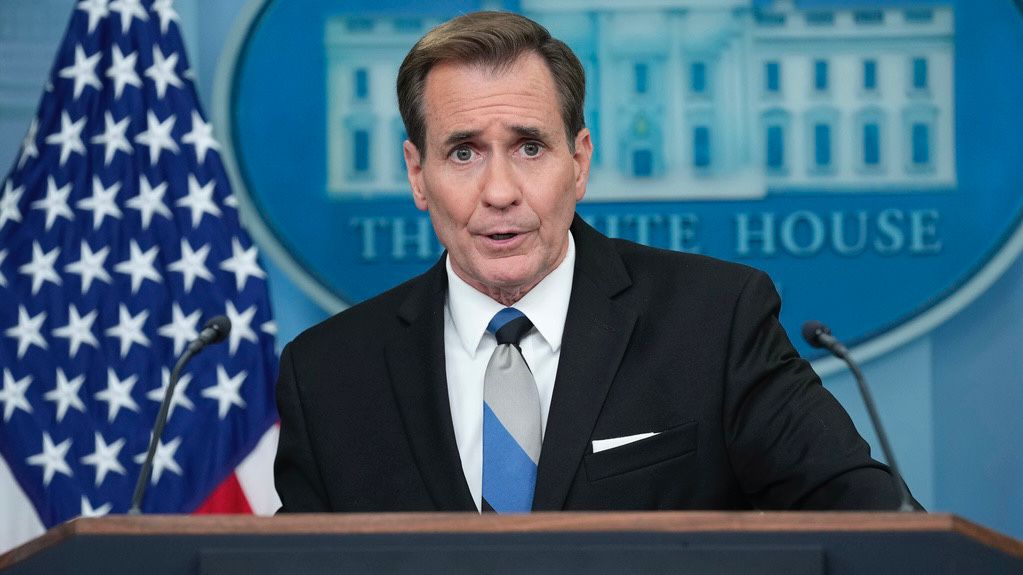Following reports Wednesday that the Israel Defense Forces plan to continue their war in Gaza through at least the end of 2024, the National Security Council confirmed it is working on a fresh proposal to temporarily pause the fighting in Gaza.
“We’ve got hostages that are still in the hands of Hamas and potentially other groups under horrific circumstances,” National Security Council spokesman John Kirby said in a briefing Wednesday. Hamas is currently holding 125 hostages in the Gaza Strip.
“We’ve got to get them home. We want to get them home in a deal tied to a cease-fire that we believe, if put in place, could lead to something more sustainable and a potential end of the conflict.”
Kirby said the Israeli government is “fully supportive of this fresh proposal” and is working with the United States “in good faith.”
He added that the United States has not seen a major Israeli ground operation in Rafah, which he defined as “thousands and thousands of troops moving in a coordinated fashion maneuvering against a variety of targets on the ground in a very aggressive way.”
Kirby said the White House does not have any more details about the explosion in a Rafah tent compound on Sunday that killed 45 innocent Palestinians, most of them women and children.
“We have been in touch with our Israeli counterparts overnight and today, and we’re trying to get as much information as we can,” Kirby said. “But I couldn’t tell you honestly that we have clarity on that particular issue.”
On Tuesday, Israeli Prime Minister Benjamin Netanyahu said the attack that ignited the fire in the tent camp was intended to kill senior Hamas operatives. The death of civilians, he said, was “tragically wrong.”
The Israel Defense Forces are investigating whether munitions it had stored near the area were ignited during Sunday’s airstrike.
Kirby would not comment on what specific weapons were used in the attack, but reiterated what the IDF has already said, “that those precision-guided munitions had a payload of about 37 pounds, which is a pretty small payload to be using.”
If that’s true, Kirby said, “that would certainly indicate a desire to be more deliberate and more precise in their targeting, but again, we need to let their investigation conclude.”
Kirby said the United States is currently working to restore the capability of the pier it built along Gaza to deliver food, water and medical supplies. On Tuesday, U.S. troops temporarily removed the pier that had only been operational for a week to repair a section that was damaged in bad weather.
“One of the goals that I know we were trying to see come out of the pier was 1,000 pallets or so per day, and we believe that’s still possible,” Kirby said.
Emphasizing the pier is temporary, he said it is not rooted into the seabed with concrete pilings but anchored by the vessels that are adjacent to it.
“This is difficult, complicated work, particularly in a maritime environment that you can’t control. It’s not like on the ground where you can parcel off a piece of dirt and put a bunch of security around it and kind of claim it and own it,” Kirby said, adding that he expects the pier to be operational again once weather conditions permit.



